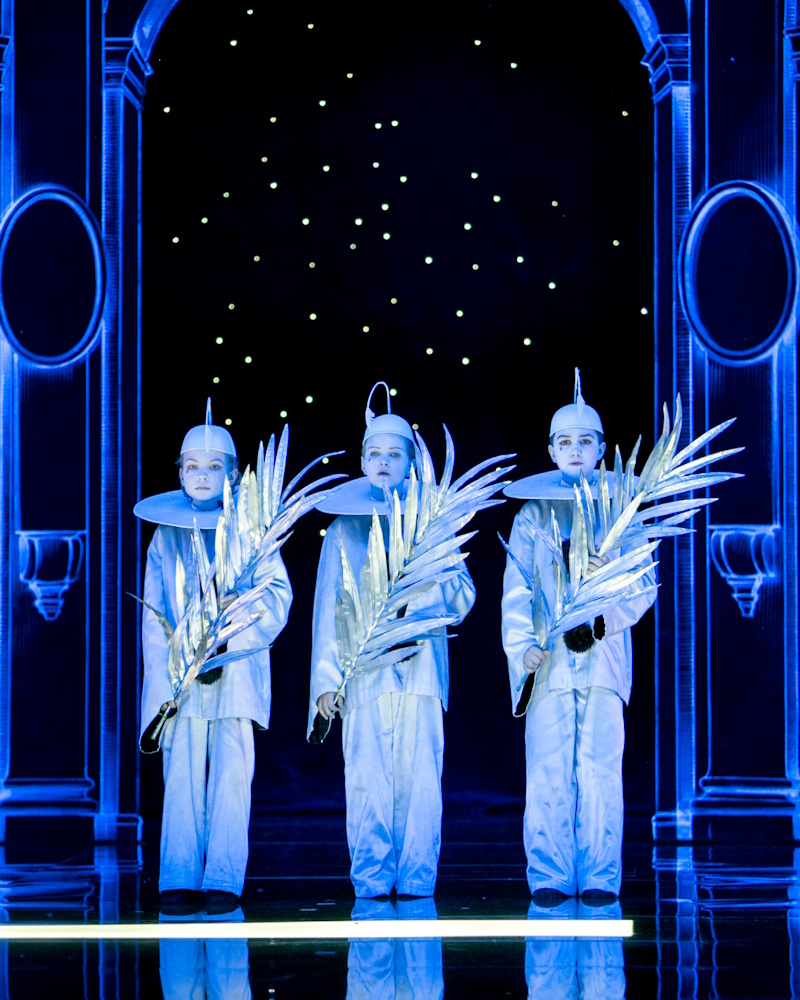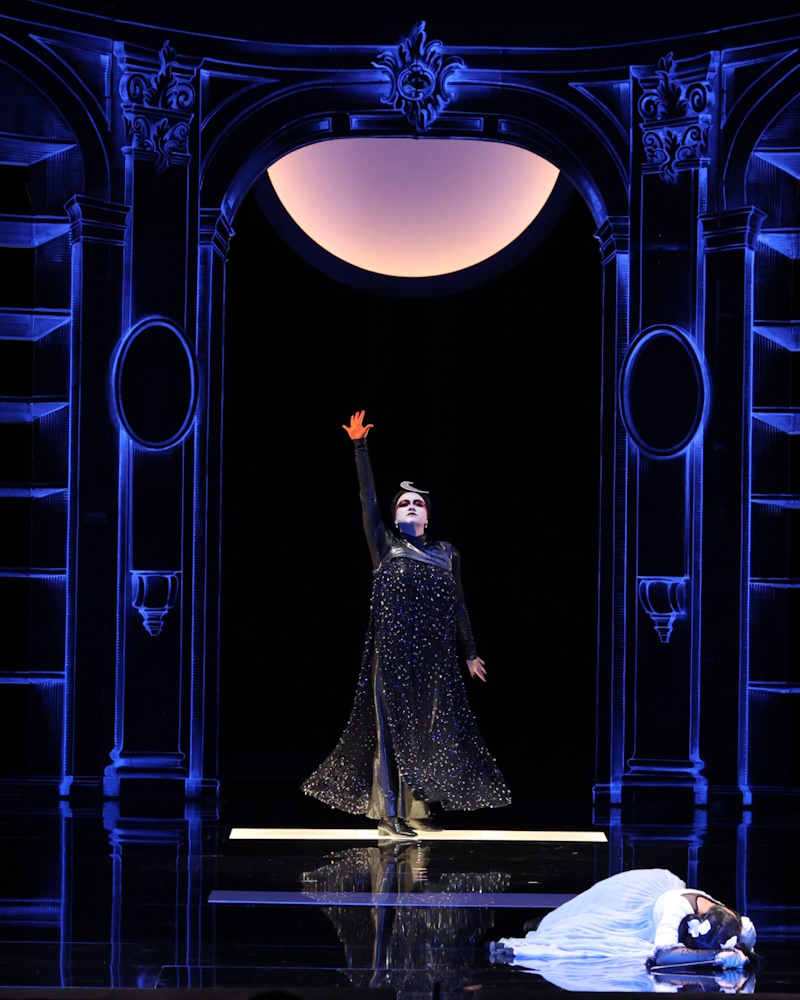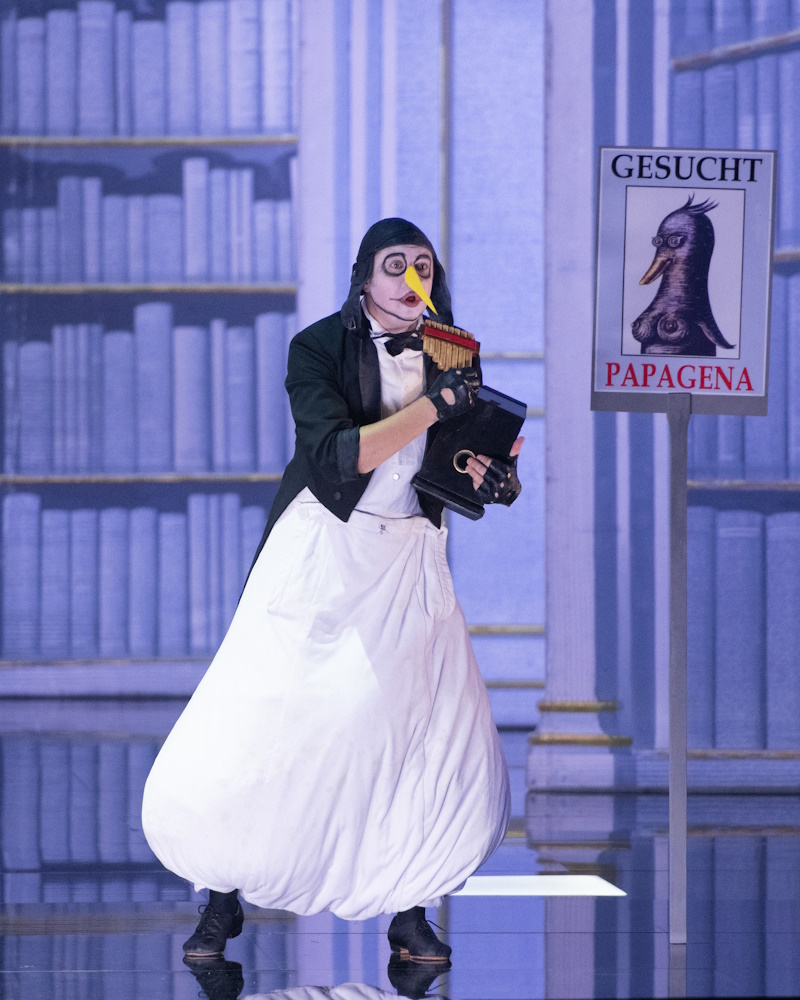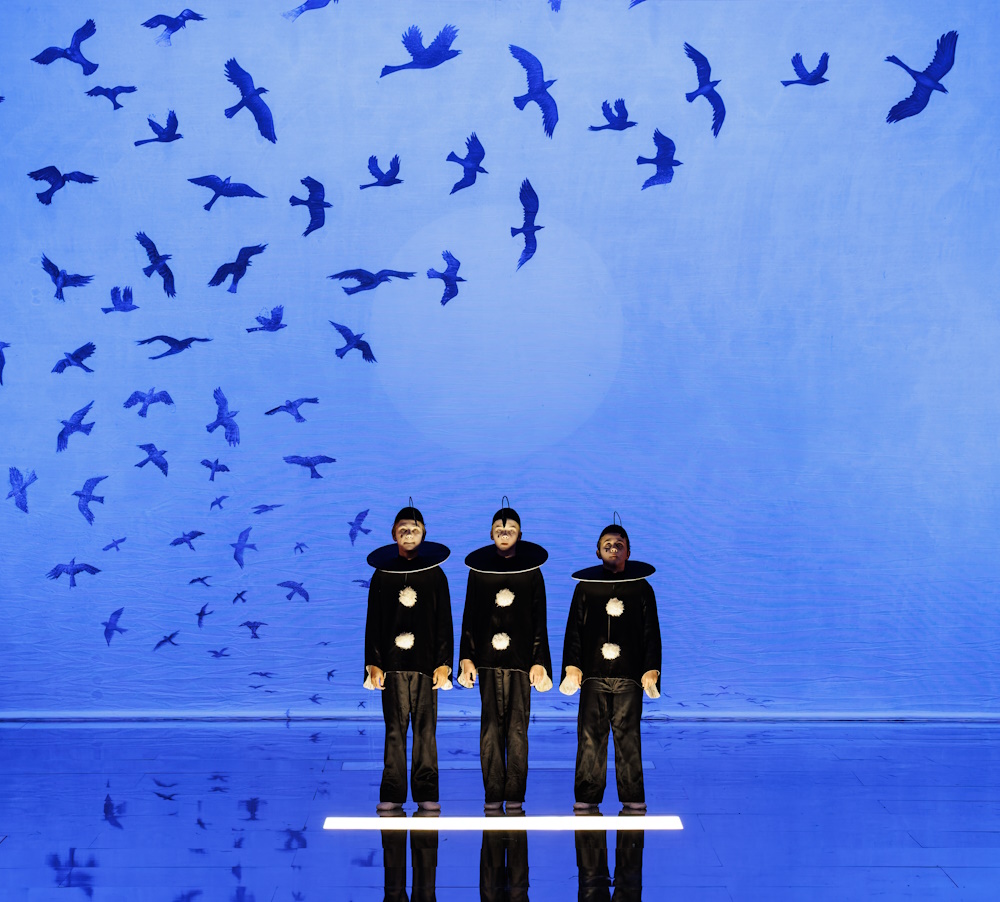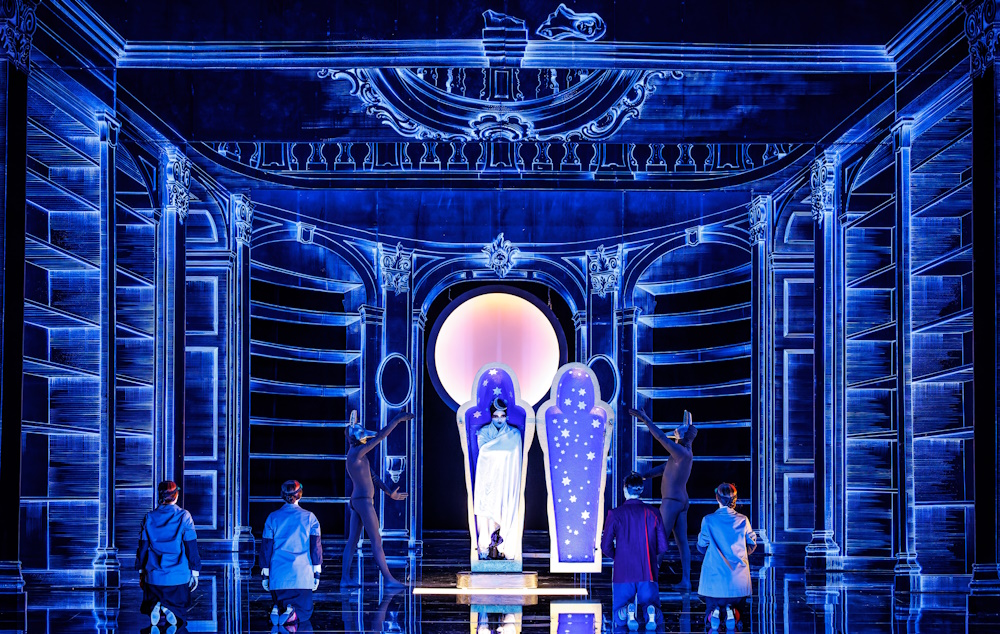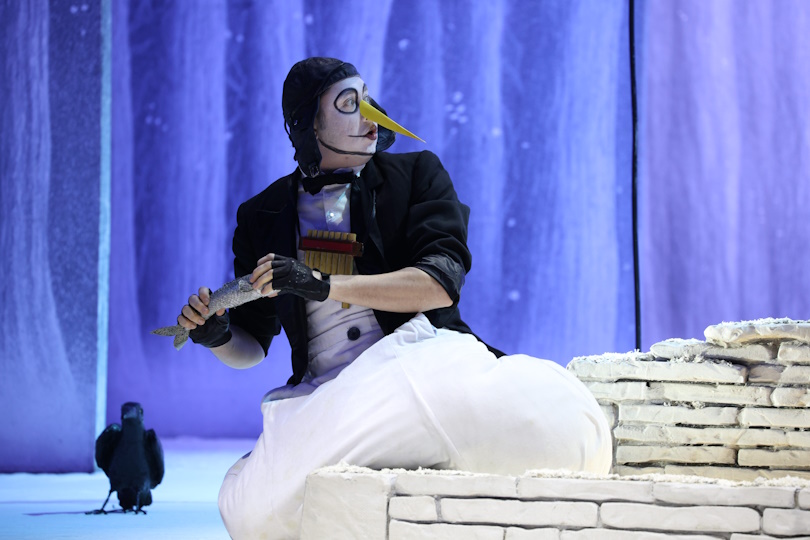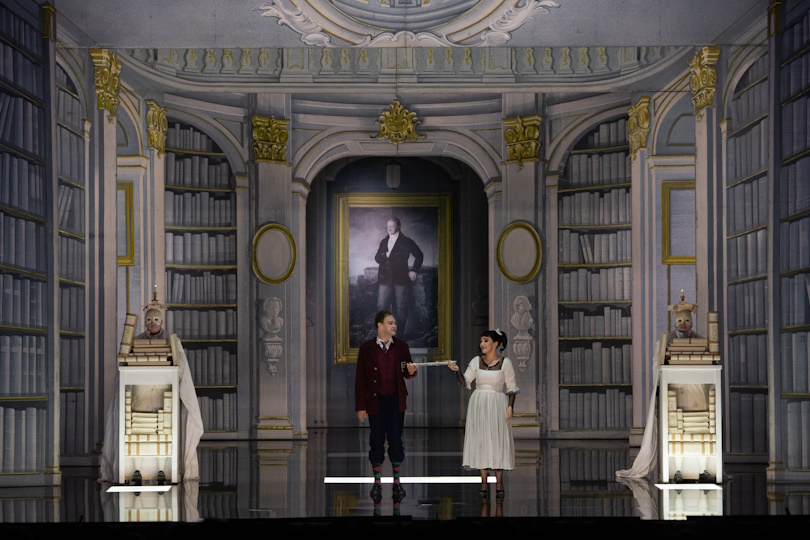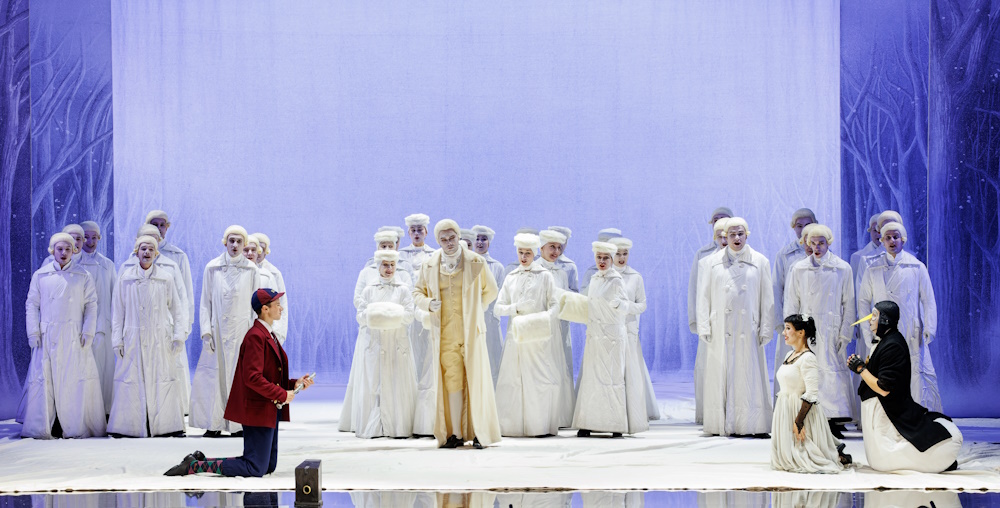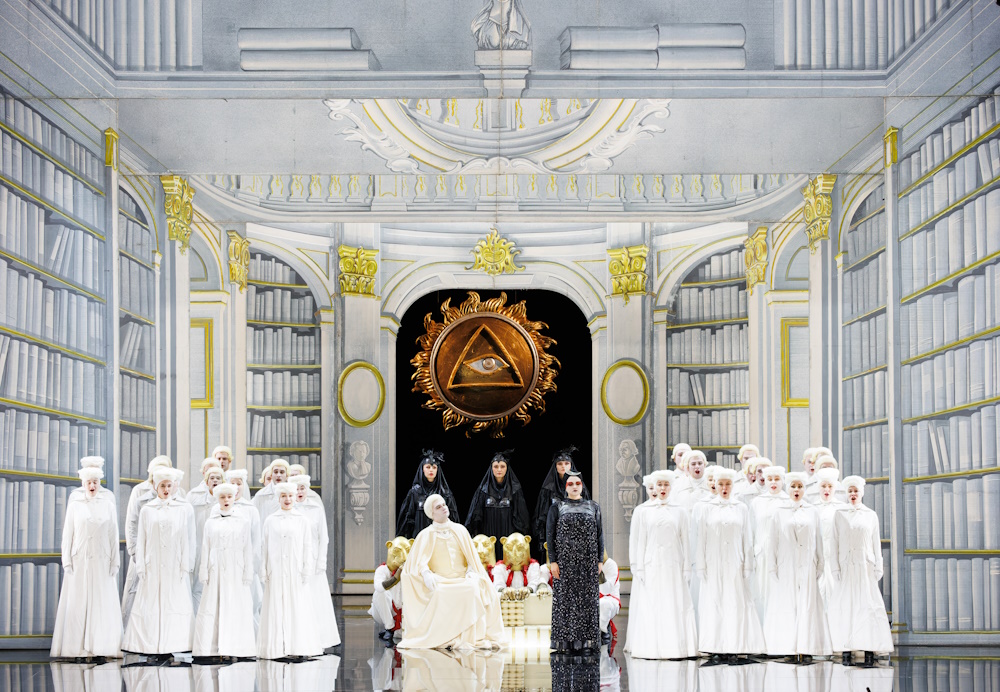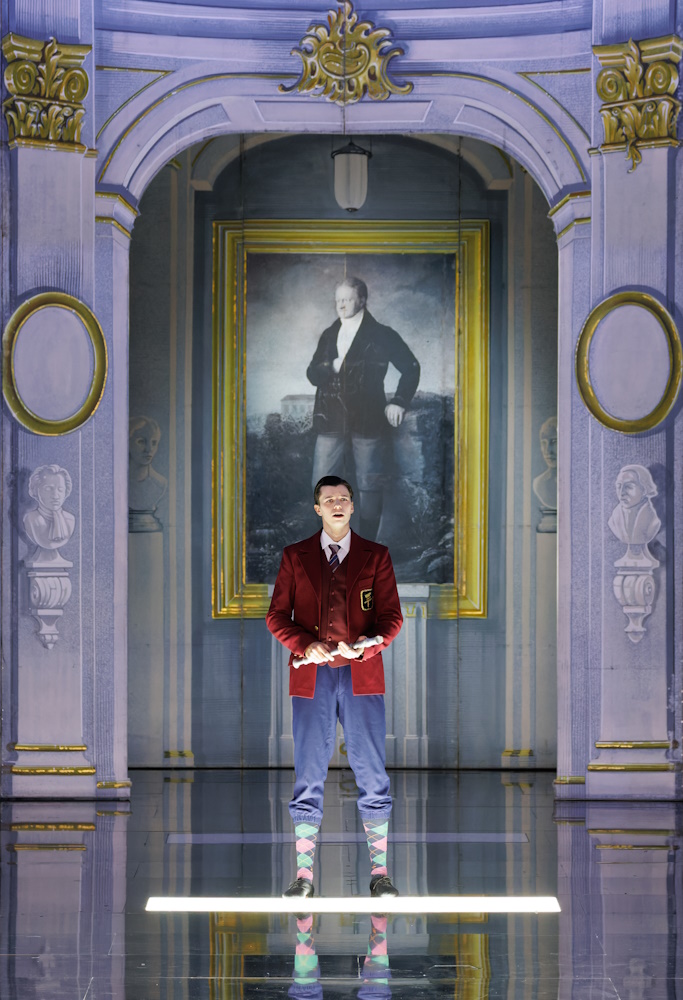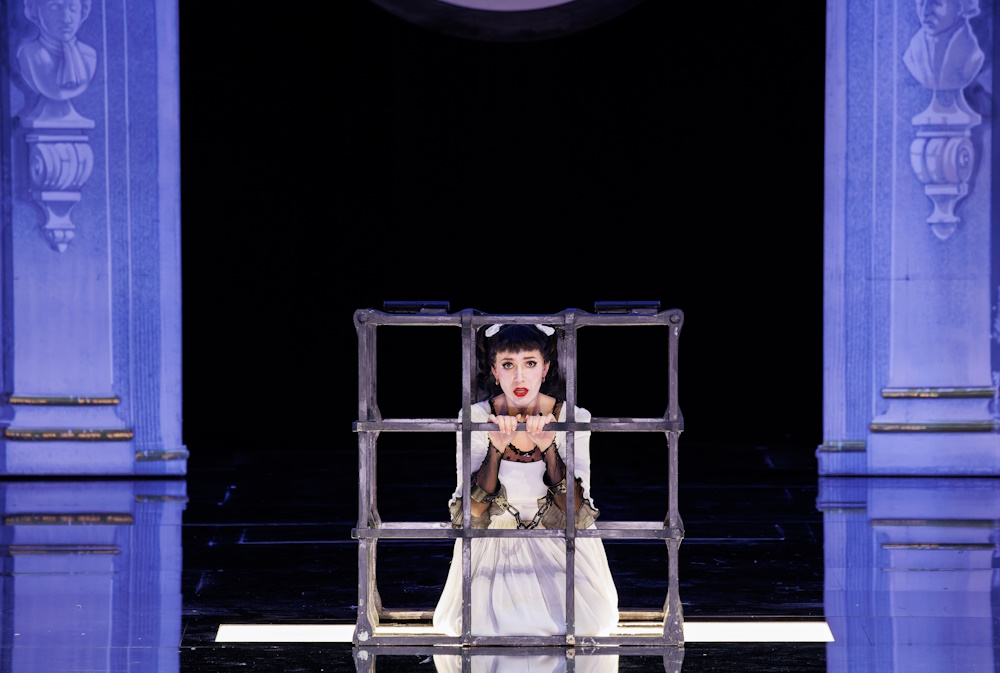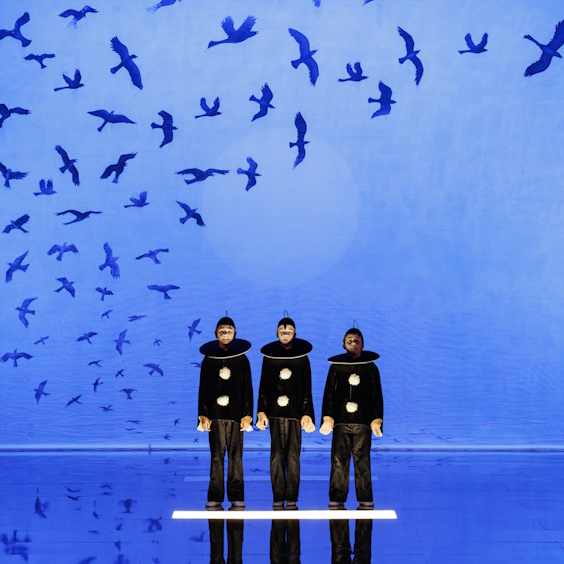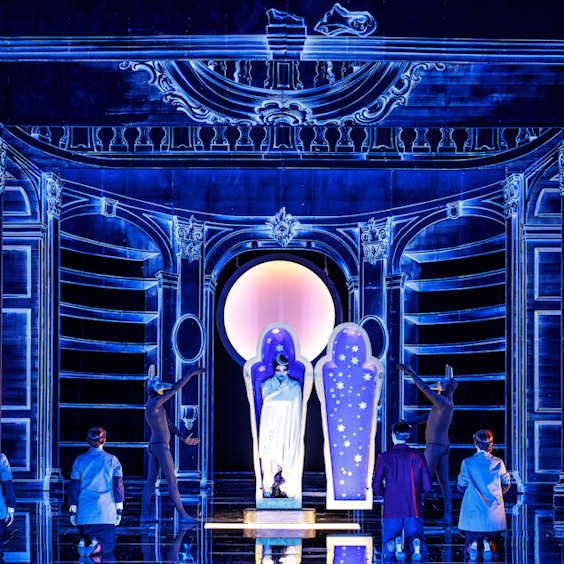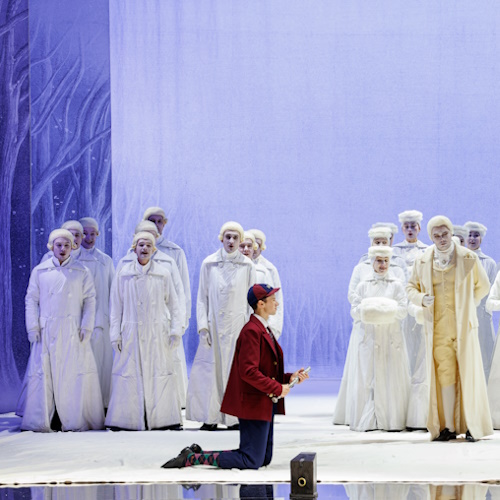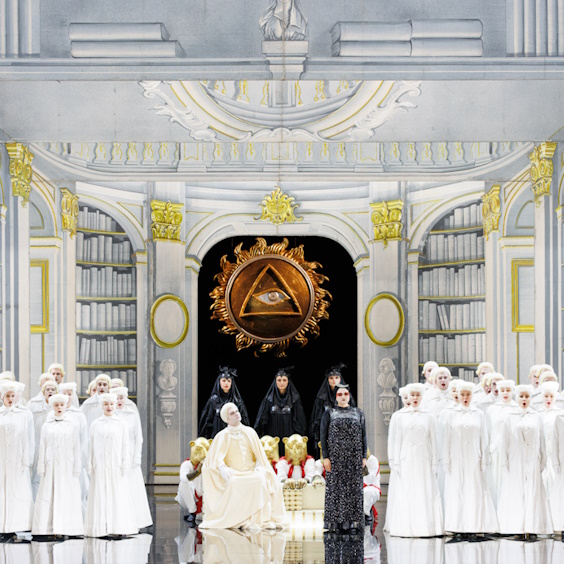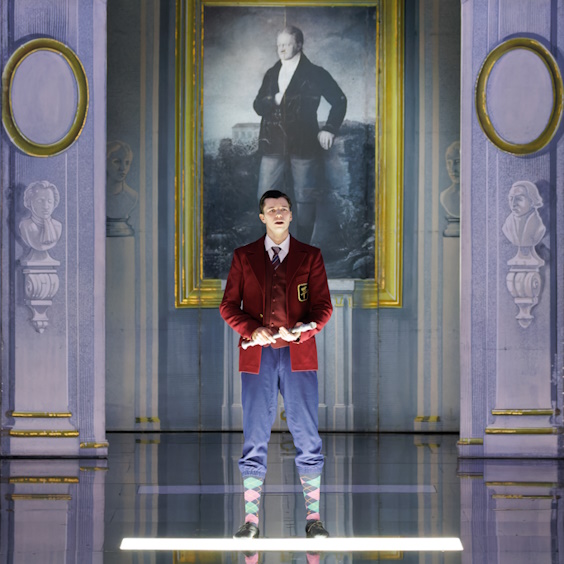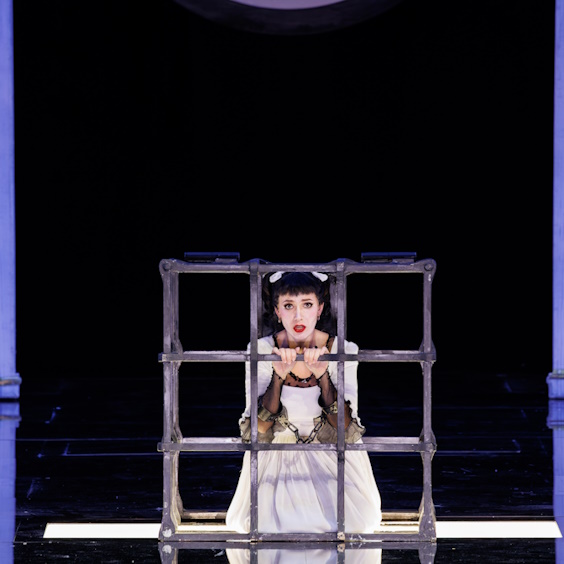Die Zauberflöte
opera in two acts
music by Wolfgang Amadeus Mozart

 performed in German (with Russian surtitles)
performed in German (with Russian surtitles)
Mozart’s opera Die Zauberflöte is performed on the Mikhailovsky’s stage in a version first seen at the Opéra de Lausanne in 2010. The well-known German stage designer and director Pet Halmen decided to shift the opera’s setting to the Duchess Anna-Amalia Library in Weimar, home to a priceless collection of rare books and librettos. And although the idea for this arose following a terrible fire that broke out at the library in 2004, destroying most of the rare volumes stored there, many critics in Europe deemed the production to be one of the most vivacious and harmonious interpretations of Die Zauberflöte in the modern era.
Recommended for family viewing
Act one
A fairy dale. Tamino, a handsome prince, is pursued by a serpent. He asks the gods to save him and faints. Three ladies, attendants of the Queen of the Night, appear and kill the serpent. They find the unconscious prince attractive, and each of them tries to convince the other two to leave. After arguing, they leave together. Tamino wakes up and sees Papageno, a bird-catcher, who complains he has no girlfriend. Tamino thinks that Papageno killed the serpent. Papageno happily takes the credit. The three ladies suddenly reappear and place a padlock over Papageno’s mouth as a warning not to lie. They give Tamino a portrait of the Queen of the Night’s daughter Pamina who has been captured by the evil sorcerer Sarastro. Tamino falls in love with Pamina and vows to rescue her.
The Queen of the Night appears and promises Tamino that Pamina will be his if he rescues her from Sarastro. The ladies remove the padlock from Papageno’s mouth and give Tamino a magic flute, which has the power to change sorrow into joy. They tell Papageno to go with Tamino and give him magic bells for protection. Tamino and Papageno set forth to Sarastro’s temple guided by three child-spirits.
Sarastro’s palace. Monostatos, a blackamoor and chief of the slaves, orders the slaves to chain Pamina and leave him alone with her. Papageno enters. Monostatos and Papageno are each terrified by the other’s strange appearance and both flee. Papageno returns and announces to Pamina that her mother has sent Tamino to save her. Pamina offers sympathy and hope to Papageno, who longs for a wife.
The three child-spirits lead Tamino to Sarastro’s temple. An old priest tells Tamino that Sarastro is not evil and that he should not trust the Queen of the Night. Tamino plays his magic flute and hears Papageno’s pipes. Papageno and Pamina enter. Monostatos and his slaves try to recapture them, but Papageno plays his magic bells making Monostatos dance.
Sarastro enters, with a crowd of followers. Pamina confesses that she tried to escape, and Sarastro receives her kindly. Monostatos brings in Tamino and tells Sarastro that he caught Papageno and Pamina and demands a reward. Sarastro, however, punishes Monostatos. He announces that Tamino must undergo trials of wisdom in order to become worthy as Pamina’s husband.
Act two
Tamino and Papageno are led in by two priests for the first trial. The priests advise Tamino and Papageno of the dangers ahead of them and swear them to silence. The three ladies appear and tempt Tamino and Papageno to speak. Papageno cannot resist answering the ladies, but Tamino remains aloof. The ladies withdraw in confusion.
Pamina is asleep. Monostatos approaches and tries to kiss her, when the Queen of the Night appears. She gives Pamina a dagger, ordering her to kill Sarastro, and leaves.
Monostatos returns and tries to force Pamina’s love by threatening to reveal the Queen’s plot, but Sarastro enters and drives him off. Pamina begs Sarastro to forgive her mother. He reassures her that revenge and cruelty have no place in his domain.
Tamino and Papageno are led in by priests, who remind them that they must remain silent. Papageno complains of thirst. An old woman enters and offers Papageno a cup of water. He drinks and teasingly asks whether she has a boyfriend. She replies that she does and that his name is Papageno and disappears. The three child-spirits bring in food, the magic flute, and the bells. Tamino plays the flute, and Pamina appears. She tries to speak with him, but Tamino, bound by his vow of silence, cannot answer her. Pamina thinks that he no longer loves her and leaves in despair.
The priests celebrate Tamino’s successes so far. Sarastro instructs Pamina and Tamino to bid each other farewell before the greater trials ahead. They exit and Papageno enters. The priests grant his request for a glass of wine and he expresses his desire for a wife. The elderly woman reappears and warns him that unless he immediately promises to marry her, he will be imprisoned forever. When Papageno promises to love her faithfully, she is transformed into the young and pretty Papagena. The priests declare that Papageno is not yet worthy of her.
The three child-spirits hail the dawn. They observe Pamina, who is contemplating suicide because she believes Tamino has abandoned her. The child-spirits restrain her and reassure her of Tamino’s love.
Two men in armour lead in Tamino. Tamino declares that he is ready to be tested. Pamina enters and declares her intention to undergo the remaining trials with him. Protected by the music of the magic flute, they pass unscathed through chambers of fire and water.
Papageno despairs at having lost Papagena and decides to hang himself. The three child-spirits stop him and advise to play his magic bells to summon Papagena. She appears. The happy couple plan their future and dream of the many children they will have together.
The traitorous Monostatos appears with the Queen of the Night and her three ladies. They plot to destroy the temple and the Queen confirms that she has promised her daughter Pamina to Monostatos, but before the conspirators can enter the temple, they are magically cast out into eternal night. Sarastro announces the sun’s triumph over the night. Everyone praises the courage of Tamino and Pamina, gives thanks to Isis and Osiris and hails the dawn of a new era of wisdom and brotherhood.
Premiere of the production: 22 March 2016
Libretto by Emanuel Schikaneder
- Original staging, sets, costumes, and lightingPet Halmen
- Staging byÉric Vigié
- Musical Director of the productionMikhail Tatarnikov
- Director’s AssistantsJean-Philippe Guilois, Yulia Prokhorova
- Principal PianistAlexander Pakuev
- Chorus MastersAlexey Dmitriev, Sergey Tsyplenkov
The performance features students of the Glinka Chorus School
Collaboration between the Mikhailovsky Theatre and the Opéra de Lausanne under the patronage of André and Rosalie Hoffmann

